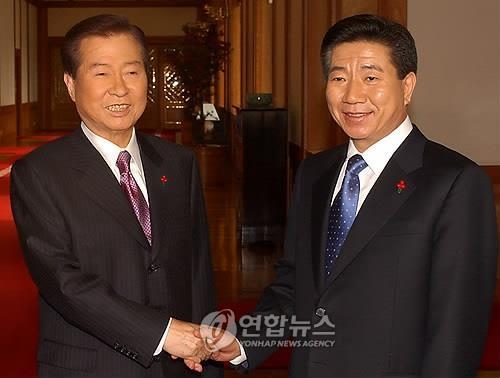On June 3, 2025, Lee Jae-myung of the Democratic Party of Korea was elected as the 21st President of South Korea. The AsiaN is publishing the hopes and expectations of Koreans for the new president and administration in both Korean and English editions. We welcome the interest, feedback, and constructive criticism of our readers.
The AsiaN Editorial Team

By Bae Ki-sun,
Executive Director and Secretary General of the Kim Dae-jung Foundation; former Member of the National Assembly
SEOUL: Congratulations to President Lee Jae-myung on his election as the 21st President of the Republic of Korea.
With his pledge to “serve the people as if they were heaven,” the fourth democratic administration rooted in popular sovereignty has officially begun. The story of a boy who, instead of going to school, had to work in a factory and later grew into a socially engaged citizen who embraced the pain of the era—and ultimately rose to become the head of state—has resonated deeply with many people.
President Lee’s political philosophy echoes that of former Presidents Kim Dae-jung, who upheld “Reverence for Heaven and Love for Humanity,” and Roh Moo-hyun, who dreamed of “a world where people live with dignity.” Lee has vowed to carry forward their spirit into the fourth democratic administration by walking alongside those who have endured hardship. His election is more than just a change in political leadership—it is the result of citizens choosing a new direction for history.
Now, the Lee administration faces critical challenges: achieving national unity, restoring constitutional democracy, rebuilding the economy, and managing the peace process on the Korean Peninsula. Entering the age of artificial intelligence (AI), Korea must also swiftly devise a national strategy. These are not just slogans—they must be backed by practical policies and concrete action plans.
President Lee has made clear his awareness of these challenges before the people. What matters now is how those promises will be fulfilled. No president can do it alone. Without the support and participation of the public, and without cooperation from the political and civic spheres, meaningful progress is impossible.
Yet there is room for hope. President Lee’s political career—marked by his commitment to the vulnerable and resistance to injustice—offers a clear path for the future of democratic governance. A strong welfare state, fair opportunities, and a mature democracy must be realized through his policy vision.
The people of this nation hold high expectations for the new government. Let us hope that it will bear that weight and truly become a government that “serves the people as if they were heaven.” His firm declaration—”There will be no political retaliation”—was particularly striking. Having faced numerous accusations and investigations in the public eye, President Lee made a clear promise to embrace even those who did not support him.
Another core tenet of his vision is the restoration of the people’s livelihood. Welfare and economic democratization must not remain empty rhetoric. Even as a candidate, he presented practical and specific policies based on direct engagement with communities. He has also pledged to appoint capable individuals based on performance, not ideology or political faction, ensuring fairness and competence in his administration.
His admiration for former President Kim Dae-jung—whom he called “a successful president”—is telling. Indeed, many of Lee’s policies, language, and demeanor bear the influence of Kim. His decisiveness in the face of injustice, empathy for the marginalized, and commitment to national unity all reflect Kim’s legacy.
As someone who observed President Kim Dae-jung up close, I learned one key lesson: to be a successful president, one must remain grounded in the everyday lives of the people. Kim embodied this ideal—not at the peak of power, but at the heart of the people’s struggles. President Lee, too, has endured much pain throughout the election and beyond, yet he never shied away from it. He has stood with his campaign members, shared in their hardships, and pledged to move forward together.
The road ahead for the Lee administration will not be easy. But if he stays true to his original vision of creating “a world where people live with dignity,” and, like Kim Dae-jung, continues to engage deeply with the people, he may indeed become a truly “successful president.”
President Lee has shown serious dedication to education, science and technology, and industrial policy. He proposed a concrete plan requiring high school students to undergo eight hours of mandatory work experience per week—a practical approach aimed at linking youth education with the future labor market.
In televised debates, he emphasized the need to prioritize ICT and AI as national agendas in an era of cyber warfare. He argued that high schools, universities, and corporations must cooperate organically to nurture talent—a position that goes beyond mere rhetoric about the Fourth Industrial Revolution and calls for concrete action.
Furthermore, he must remain free from the constraints of ideology and partisanship. Policies must be tailored to regional realities, and a balanced diplomatic stance must be maintained between North Korea and the United States. His belief in “the state’s role beyond the market” aligns with long-standing perspectives advocated by institutions such as the World Bank and Korea Development Institute (KDI). Welfare should be recognized as a right for the vulnerable, and economic policies should serve to guarantee that right. His vision of a “strong welfare state and a government that embraces the marginalized” must not remain a dream—it must become a concrete reality.
If the “living democracy” achieved by Presidents Kim Dae-jung and Roh Moo-hyun can once again flourish under the Lee administration, Korea will be able to take a leap forward into a more mature republic and a truly advanced nation.
A president who fulfills promises to the people, and a government that prepares for the future—that is the historical mission now entrusted to President Lee Jae-myung and his administration.



